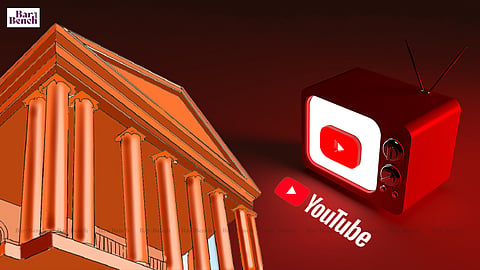
- News
- Columns
- Interviews
- Law Firms
- Apprentice Lawyer
- Legal Jobs
- हिंदी
- ಕನ್ನಡ

The Karnataka High Court has notified rules for live streaming and recording of court proceedings in the High Court as well as all courts and tribunals in the State falling under the High Court's supervisory jurisdiction.